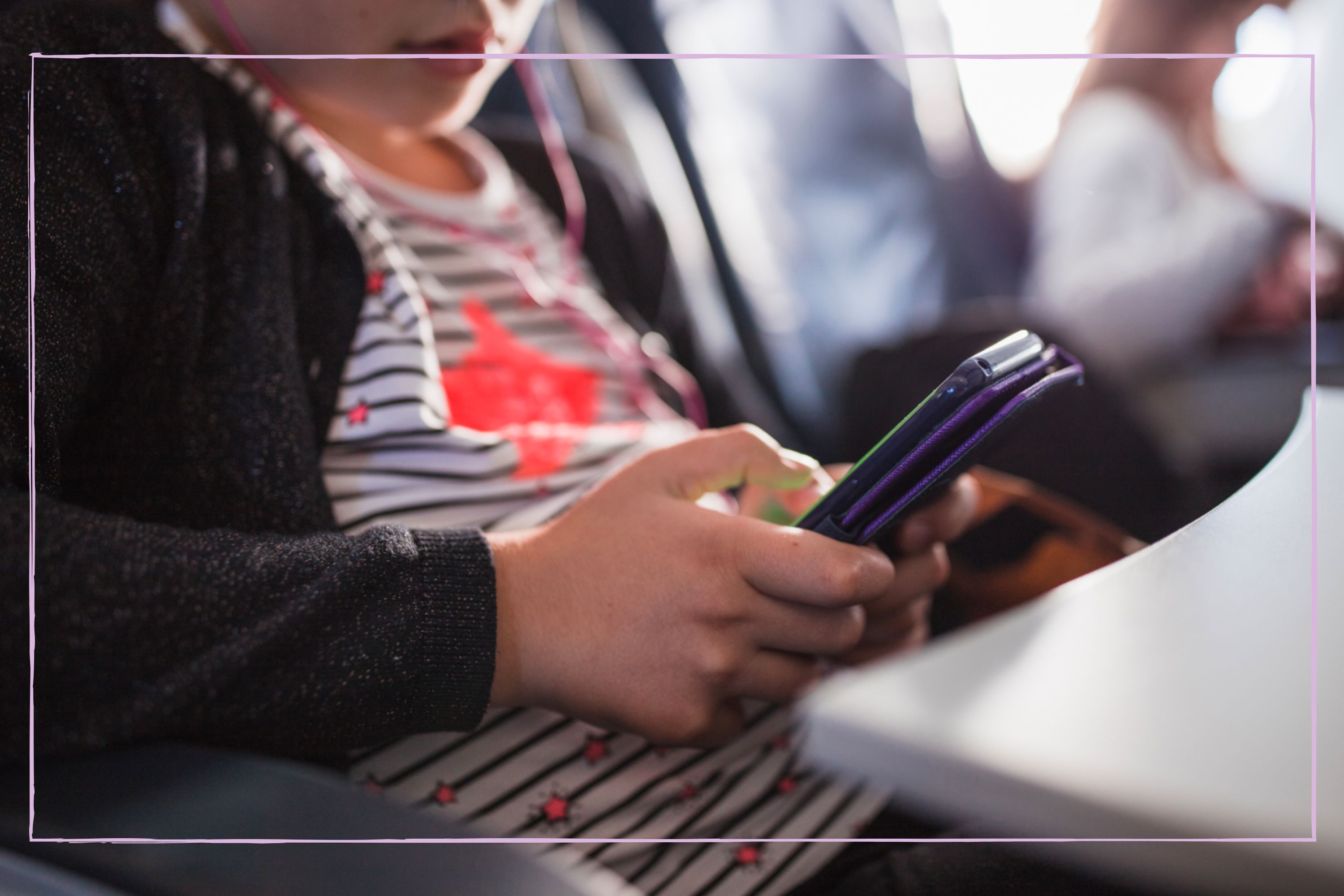Online harassment of girls is 'so standard it's not noteworthy', new research finds - with 77% of teen girls reporting 'harmful' digital experiences
We share conversation starters to help kids tackle online abuse


77% of teen girls have reported digital experiences that 'could be harmful', an online safety charity has found.
Online safety is a huge talking point among modern parents. With media regulator Ofcom revealing that violent content has become a normal part of children’s online lives, and research showing that it takes just 10 minutes for children to come across 'unsafe, age-restricted and illegal content', it's no surprise that parents are looking for tips to keep children safe on social media.
And now, new data has revealed that young girls could be particularly at risk. Online safety charity Internet Matters recently found that 77 per cent of girls aged 13 to 16 in the UK report digital experiences that are or may be harmful. This is significantly more than all children, which sits at 66 per cent.
The report highlights a dilemma faced by many girls, who are drawn to the benefits of the online world but confronted with unwanted comments or male attention, as well as the worrying finding that some parents have come to accept men harassing girls online as 'standard'. The reserach explained that parents "are coming to regard online harassment of girls as normal - verging upon trivialising it".
One anonymous girl who was interviewed as part of the survey shared her experience of online harassment. "Sometimes they comment on my personal appearance, those are the ones which tend to affect me the most," she explained. "We get comments about our physical features, our face, calling us ugly or about our bodies."
Meanwhile, a mother with a 15-year-old daughter said in an interview with Internet Matters that "dick pics" are "so standard it's not noteworthy and they just block it and move on". Another mother of a 17-year-old girl said her daughter had older men asking to be her "sugar daddy" on her modelling account on Instagram.
Carolyn Bunting, the charity's co-executive, noted the majority of parents "are doing their best" to support their children but said she is concerned that "we've collectively lost sight of the fact that what is unacceptable offline should also be unacceptable online".
Parenting advice, hot topics, best buys and family finance tips delivered straight to your inbox.
Despite the alarming findings, teenage girls surveyed said that spending time is important to them. 57 per cent of girls aged 13-16 report that they feel mostly happy when spending time online, especially when connecting with friends and being creative, while many said that social media encourages creativity.
And while parental oversight and dialogue are important to digital wellbeing, the report highlights that girls and their parents cannot solve these problems alone. It recommends that harassment is tackled at its root through public campaigns, forthcoming Ofcom guidance (due in 2025), social platforms disincentivising harm and greater engagement with girls regarding the harassment they experience online.
If you're worried about your child experiencing or witnessing harassment online, Internet Matters has shared some conversation starters to help tackle online abuse:
- Have you ever seen something online that made you feel uncomfortable for another person/group of people?
- Imagine you see a comment about a girl's appearance that is negative or sexual in nature. What do you do?
- Imagine that your friend shares an image of a girl with you or without her permission. They make fun of her or sexualise her. What do you do?
- What emotions might someone feel when they go online to have fun but end up receiving hateful or sexual comments?
- Think of [a girl/woman they admire/are close to]. How would these kinds of comments/images affect them? How would that make you feel?
- What could boys and men do to make the online space safer for girls?
- What could you do to empower girls on social media when it comes to harassment and abuse many girls face?
- If a friend shared that she was being harassed online, what advice would you give her?
- Why might a girl ignore the harassment or abuse they face online?
For more advice on keeping kids safe on social media, visit internetmatters.org
In related news, a new Facebook roll-out means parents are being advised to “think carefully” about letting their children use the social media platform, as Prince Harry and Meghan call for change to online child safety. Elsewhere, we've shared 15 'life-saving' questions to ask your child if they’re online gaming.

Ellie is GoodtoKnow’s Family News Editor and covers all the latest trends in the parenting world - from relationship advice and baby names to wellbeing and self-care ideas for busy mums. Ellie is also an NCTJ-qualified journalist and has a distinction in MA Magazine Journalism from Nottingham Trent University and a first-class degree in Journalism from Cardiff University. Previously, Ellie has worked with BBC Good Food, The Big Issue, and the Nottingham Post, as well as freelancing as an arts and entertainment writer alongside her studies. When she’s not got her nose in a book, you’ll probably find Ellie jogging around her local park, indulging in an insta-worthy restaurant, or watching Netflix’s newest true crime documentary.